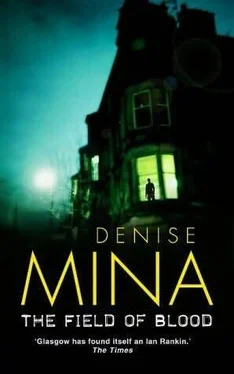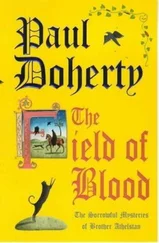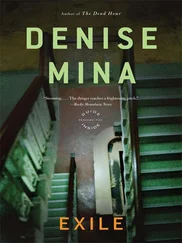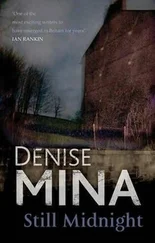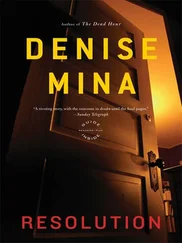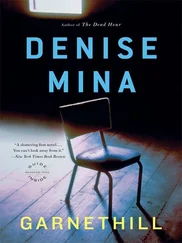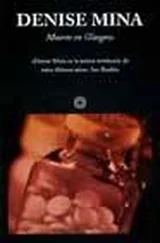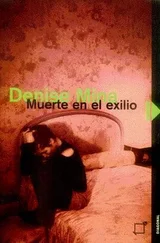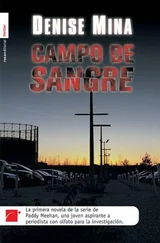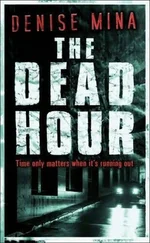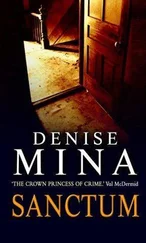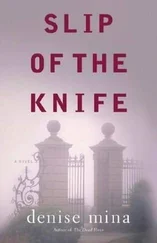Denise Mina - Field of Blood
Здесь есть возможность читать онлайн «Denise Mina - Field of Blood» весь текст электронной книги совершенно бесплатно (целиком полную версию без сокращений). В некоторых случаях можно слушать аудио, скачать через торрент в формате fb2 и присутствует краткое содержание. Жанр: Триллер, на английском языке. Описание произведения, (предисловие) а так же отзывы посетителей доступны на портале библиотеки ЛибКат.
- Название:Field of Blood
- Автор:
- Жанр:
- Год:неизвестен
- ISBN:нет данных
- Рейтинг книги:3 / 5. Голосов: 1
-
Избранное:Добавить в избранное
- Отзывы:
-
Ваша оценка:
- 60
- 1
- 2
- 3
- 4
- 5
Field of Blood: краткое содержание, описание и аннотация
Предлагаем к чтению аннотацию, описание, краткое содержание или предисловие (зависит от того, что написал сам автор книги «Field of Blood»). Если вы не нашли необходимую информацию о книге — напишите в комментариях, мы постараемся отыскать её.
Field of Blood — читать онлайн бесплатно полную книгу (весь текст) целиком
Ниже представлен текст книги, разбитый по страницам. Система сохранения места последней прочитанной страницы, позволяет с удобством читать онлайн бесплатно книгу «Field of Blood», без необходимости каждый раз заново искать на чём Вы остановились. Поставьте закладку, и сможете в любой момент перейти на страницу, на которой закончили чтение.
Интервал:
Закладка:
By way of a drink, Sean’s Auntie Maggie had dished out whisky from a bottle she had brought herself. There weren’t any glasses in the house; they had to use chipped mugs and pastel plastic children’s beakers. Paddy’s beaker hadn’t been washed out properly, and a crescent of dried milk floated to the surface, clouding the whisky.
Callum’s mother had long, straggly hair that hung from a center parting over her face, slicing away cheekbones and jaw, leaving her as nothing but a pair of dead, wet eyes and bloodless lips. Sometimes her face would slacken, her mouth would fall open, and she would weep, exhausted. She helped herself to other people’s cups from the table, getting drunk quickly, disgracing herself. Sean said that she’d been like that before the father died, she’d been like that for a long time, and everybody already knew about it. The mourners had stayed on just as long as was polite and all left at the same time, lifting from the dirty Barnhill house as suddenly as a startled flock of birds.
Paddy had a grudging respect for irresponsible mothers. It wasn’t much of a job. Every mother she knew was anxious and fretful and never any fun at all. She tried hard to be respectful of Trisha, tried to appreciate and thank her for all she did, but couldn’t stop herself sniggering along when Marty and Gerald made fun of her. All the mothers she knew worked unlauded all their lives, aging before anyone else in the family, until the only thing that differentiated them from old, old men was a perm and a set of earrings.
The train arrived and the commuters pressed forward, carrying Paddy along on the flow of bodies. She wished she could turn back and run up to Albion Street and hide in the office. She was one of the last people to squeeze through the carriage doors before they shut.
As the train pulled away from the platform she imagined herself, wearing smart clothes and a miraculous half-foot taller, swaggering into glamorous rooms with a pan-scope stretched body, asking pertinent questions and writing important articles. All the fantasies felt hollow this evening. She had an ominous sense that a shadow had marked her, that everything was fated to go wrong from here on in. Luck could curdle, she knew. The train pulled out of the dark station, dragging her homeward, delivering her to her people.
II
It was raining hard by the time the train reached Rutherglen, washing away the pretty remains of the snow. Paddy followed the crowd up the steep stairs to the covered bridge.
A crowd of drunks were gathered outside the Tower Bar, a backstreet pub with an entrance next to the public toilets. A recent patron of possibly both establishments was trying to zip up his bomber jacket, attempting again and again to dock the pin in the eye, swaying with the effort of concentration. Another man, the father of a boy she had been at Trinity with, was carefully watching the action, hugging a carryout of two beer cans. Paddy was glad she had her duffel coat hood up- he might have recognized her and tried to speak to her. Eventually the man carrying the party tins lost patience, cut across the straggling crowd coming from the train, and headed up the narrow alley to the Main Street, hurriedly followed by the drunk dresser, yanking his jacket straight.
Rutherglen Main Street’s pavements were broad, a reminder of the market past of the town, when its royal charter set it up as a rival to the nearby village of Glasgow. Little of the original town remained. The long winding tail of West Main Street, lined with drovers’ cottages and pubs built when Mary of Guise was on the throne, had been knocked down and tarmac’d to make a large new road to other parts of the Southside. In the course of one development, Rutherglen had gone from an ancient market town to an intersection.
Men and women from Castlemilk, the new housing scheme just up the road, would come down to find Republican and Unionist pubs, or pubs that sold drink in the big quarter-gill measures instead of the English eighth. Rolling down the hill to Rutherglen was always less problematic than rolling back up again; after lunchtime and evening closing the Main Street was littered with drunks sleeping on benches, collapsed on pavements, or wide awake and causing grief in shops.
Paddy passed bus stops where waiting workers spilled out onto the road, peering up the street through the rain, watching anxiously for the right number. She passed Granny Annie’s dark house and headed up to Gallowflat Street.
Sean lived in a ground-floor tenement flat. Like Paddy, he was the youngest of a large family, but all his siblings had married and left home, and he was the last one left. His mother was a widow and had swapped her council house for the three-bedroom flat she found easier to keep. When she wasn’t at home fussing around her precious Sean, she poured all her extra energy into fund-raising for the White Fathers’ African missions and other charities. Natural disasters were her favorites.
Through the living room window, Paddy could hear the Nationwide theme coming from the Ogilvys’ television. The kitchen window was steamed opaque and propped open with a can of beans; the smell of cabbage and pissy boiled washing powder seeped through the narrow opening. Paddy stopped outside the close, resting one foot on the stair, and took a breath. This was best, coming here first. Sean might even come home with her and show her mum that the Ogilvys weren’t angry. She thought of Sean’s face and felt a great burst of love. She’d never wanted to see him more. She walked up the close and took a breath before pressing the bell.
Mimi Ogilvy opened the door and let out a muted eek when she saw Paddy. She had always pretended to like her prospective daughter-in-law because she was a Meehan, but she had confided in Sean that she didn’t approve of Paddy having a job with career prospects. It made her seem fast.
“Oh, hiya, Mrs. Ogilvy,” said Paddy, wishing that this was going a bit better. “No need to scream, ha. It’s just me.”
Mrs. Ogilvy fell back into the hall, lifting her pinny in front of her mouth. She called to Sean, keeping her eyes on Paddy. He didn’t come immediately, and the two women were left staring at each other, Paddy sporting a nervous smile, Mrs. Ogilvy’s shock coagulating into malevolence.
Sean ambled out of the kitchen, chewing a slice of white bread folded in half. He stiffened when he saw it was her.
Paddy waved at him. “Hiya,” she said feebly.
He stepped in front of his mother and pulled the door half shut, filling the space with his body. Mrs. Ogilvy sniffed a demand for attention behind him. “Get back inside, Ma,” he said.
Mimi whispered something that Paddy couldn’t hear and backed off. A door slammed behind him.
“Not the Ogilvys’ favorite girl, then?”
“Go home, Paddy.” He had never spoken so coldly to her before, and it threw her.
“I didn’t do it, Sean.” She spoke quickly, afraid he would slam the door in her face. “I confided in a girl at work when I saw the picture of Callum, and she sold the story. I only told her because I was upset.”
Sean looked past her.
She felt a rising sense of fright. “I swear, Seanie, I promise that’s what happened-”
“My ma’s gutted. I read it at my work. I was eating my lunch and somebody showed it to me. It wasn’t nice.”
“You read the paper?” She was surprised, because he never admitted to reading the Daily News . It was a point of pride with him, because it was more of a broadsheet than a tabloid.
“Someone else bought it,” he explained.
“Sean, would I do that? Would I, Sean?” She was using his name too much, her voice high and wavering. She knew her face was contracted against her will, her mouth stretching wide with fear.
Читать дальшеИнтервал:
Закладка:
Похожие книги на «Field of Blood»
Представляем Вашему вниманию похожие книги на «Field of Blood» списком для выбора. Мы отобрали схожую по названию и смыслу литературу в надежде предоставить читателям больше вариантов отыскать новые, интересные, ещё непрочитанные произведения.
Обсуждение, отзывы о книге «Field of Blood» и просто собственные мнения читателей. Оставьте ваши комментарии, напишите, что Вы думаете о произведении, его смысле или главных героях. Укажите что конкретно понравилось, а что нет, и почему Вы так считаете.
